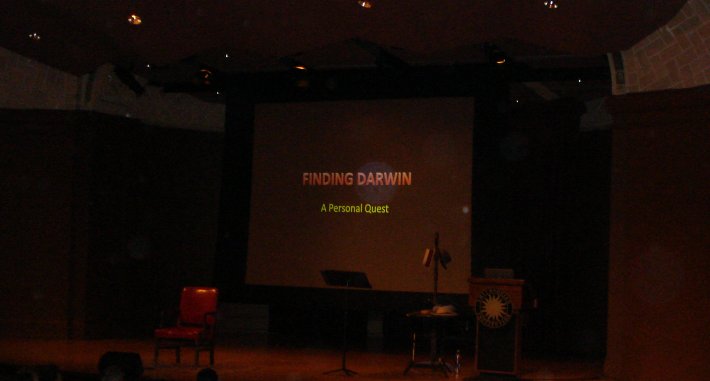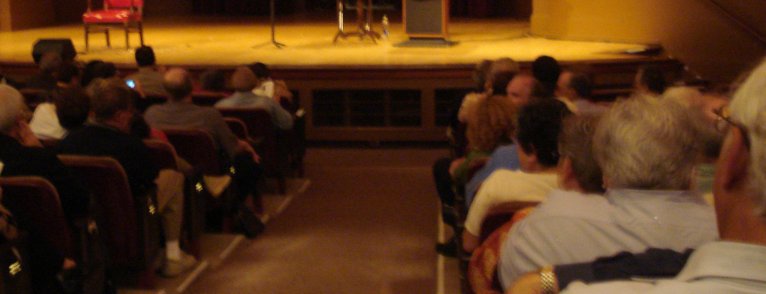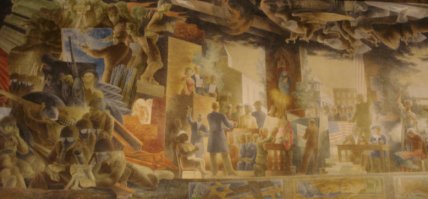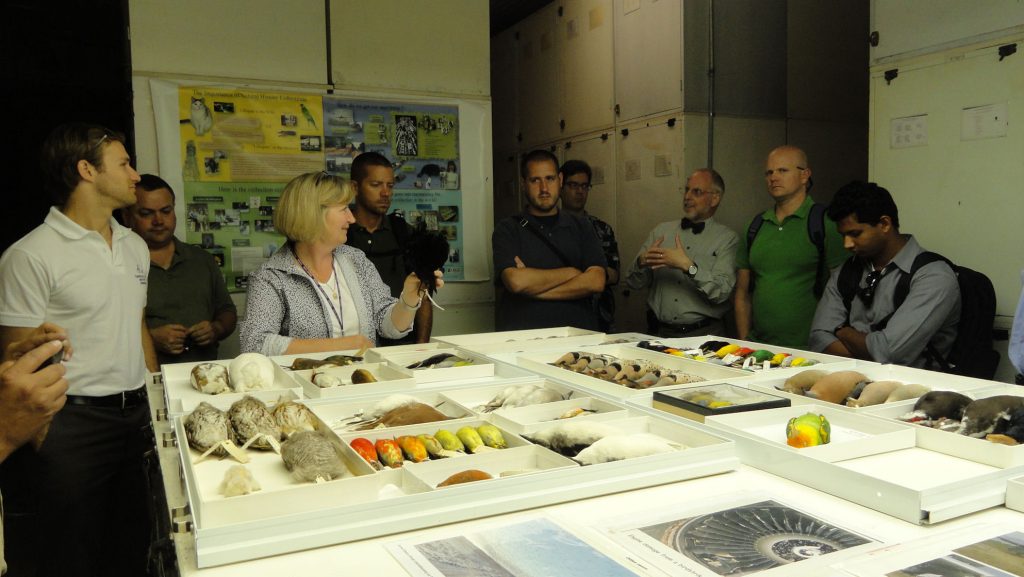
State Department, in its wisdom & generosity, is allowing me to take a two week course on environment. I am learning lots of new things, reviewing even more and updating my outdated conceptions. The last of these things may be the most useful. As Mark Twain said, “It ain’t what you don’t know that gets you into trouble. It’s what you know for sure that just ain’t so.” Anyway, it is fun and I believe it will be useful to my work in Brazil, where environment is a big part of our bilateral engagement.
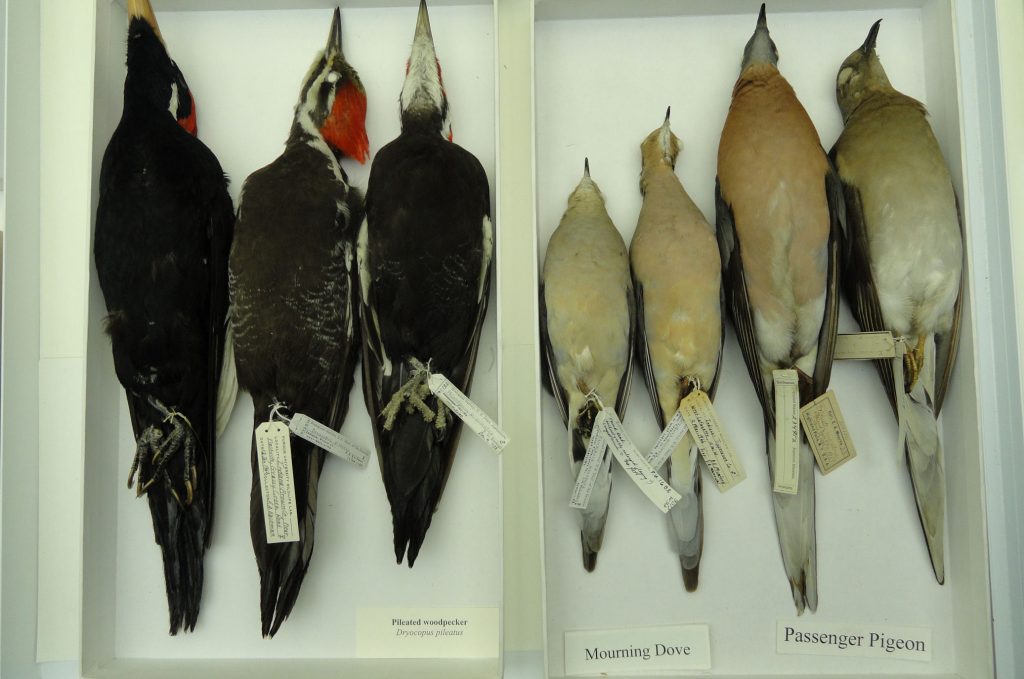
Today we got an afternoon field trip to the Smithsonian. I have been there many times before, but never in the back room. Less than 1% of the Smithsonian’s collections are on display. The rest are filed away, available for study. The Smithsonian’s mission is to increase and disseminate knowledge. The museum part is only a part of a much bigger whole.
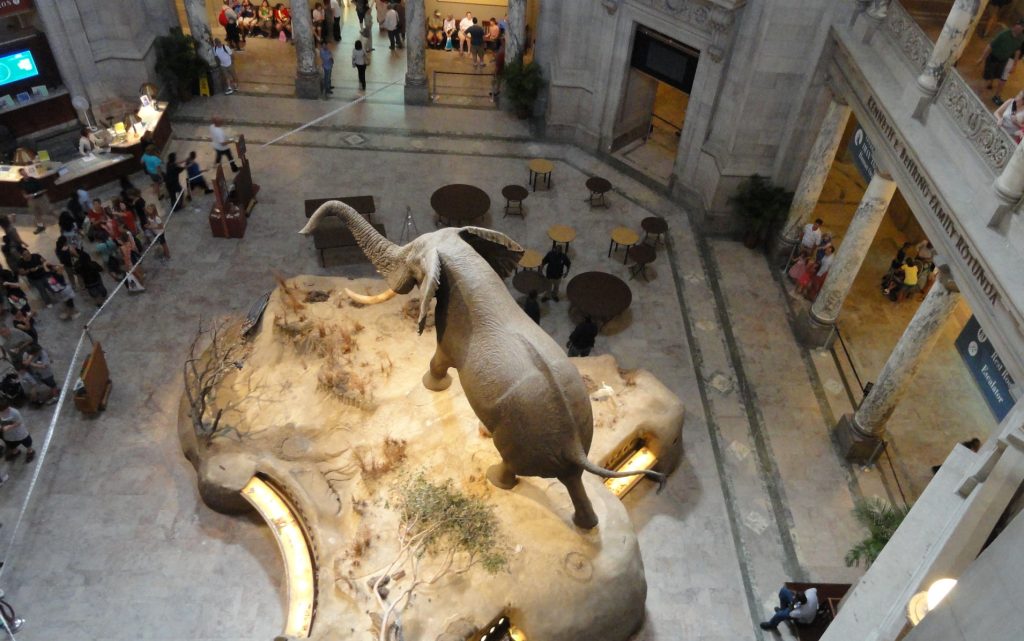
One of the curators explained the importance of the physical specimen. Of course, we could take pictures and all the measurements and we would have everything we need … today. But what about the future? One of the most powerful tools for understanding nature today is DNA analysis. When many of these birds were collected, nobody has any idea about DNA. It would not – could not – have been recorded. That information would have been unavailable. We don’t know what sorts of tests will be available in the future. We should not bind the future to our backward techniques any more than we would want to be tied to the techniques of the Victorian Era. We should give the future the same sorts of opportunities our predecessors gave us.
Science is dynamic. Many of the things I learned as a kid are just plain wrong. DNA is redrawing family trees and making us think about evolution in very different ways. Some relationships were not clear from looking birds or animals. Other things that seemed related were not.
Of course, we should be humbled by this. If “their” science, i.e. the science of the recent past, could be so wrong, how do we know ours is going to stand up any better? Maybe future scientists will discover something as revolutionary as DNA and as mysterious to us as DNA would have been in Darwin’s day. We are not stupid and neither were our ancestors. But we all are always ignorant in many ways.
We can never give up. Mark Twain was right about knowing. But maybe we should also quote TS Eliot, from “The Wasteland” I think it applies to science.
We shall not cease from exploration
And the end of all our exploring
Will be to arrive where we started
And know the place for the first time.
It is getting harder to collect and advance science. Many countries now object to collecting and some fear that genetic material will be misused or they will somehow be cheated. This is anti-science. When you get knowledge, the total available knowledge expands. Nobody loses. Everybody wins, unless we cease from exploration.

